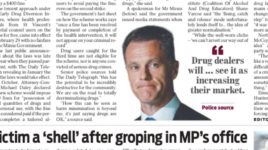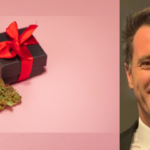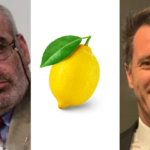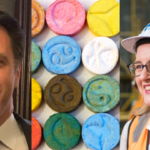NSW Government Panders to Murdoch on Drug Law Reform, To the Detriment of NSW

NSW Greens MLC Cate Faehrmann last year laid the blame for the breakdown in the drug law reform agenda that had been progressed by members of the current NSW cabinet, only to then fall apart, at the feet of new premier Chris Minns, who’d been bullied into this position by the Murdoch media.
The Greens drug law reform spokesperson has been pushing changes to zero-tolerance drug policy since 2018. And in having campaigned alongside current key NSW Labor ministers, during the Perrottet premiership, Faehrmann knows all too well the now broken promises made by Minns.
The Murdoch campaign against any drug law reform ideas the March 2023-elected NSW Labor government might have had in its sights began last August, as Minns, whether prearranged or not, caved in to questions relating to the ACT’s coming drug decriminalisation policy that’s now in place.
In turning his back on all those members of the constituency that current Labor ministers had promised robust drug law reform would forthcoming, Minns has since launched opposition leader Mark Speakman’s 2022 weaker alternative proposal to deal with low-level drug possession charges.
This relic of the Perrottet years, the Early Drug Diversion Initiative (EDDI), came into effect on 25 February, yet it is not the drug decriminalisation policy that drug law reformists are pushing for, but it is much better than the previous zero-tolerance approach to drugs being taken by NSW police.
However, for Murdoch, this approach is too-soft-on-drugs, so The Daily Telegraph has begun kicking the premier in the head again. And it must be asked why this reactionary media mogul should have any say in how local youths and adults are treated in regard to the common practice of taking drugs.
A step in the right direction
The Liberal-designed and Labor-enacted EDDI now permits NSW police officers to issue up to two on-the-spot $400 fines in relation to an individual found in possession of a small quantity of an illicit substance. So, this can happen twice before a charge of drug possession is necessitated.
However, an alternative to paying the fines exists and this involves sitting for an hourlong over-the-phone drug counselling session, operated by St Vincents Hospital drug counsellors. And two such sessions can be undertaken without any financial penalty and prior to any charging.
These laws apply to personal use quantities of certain illicit drugs. These limits include up to 1 gram of heroin, methamphetamine and cocaine, and as for MDMA, up to 0.25 grams in powered form is considered personal under the laws, and up to 0.75 grams in pill form warrants the same approach.
Veteran drug law reformist Dr Alex Wodak has been a key figure in revolutionising our society’s approach to drugs over the last four decades, and though he’s long pushed for decriminalisation, he told Sydney Criminal Lawyers last week that he welcomes the “modest” scheme.
The fines are issued with police officer discretion, however, and figures relating to the preexisting cannabis cautioning scheme show it continues to result in possession charges, and in these cases, the statistics show racial bias in the continued distribution of the charges.
Yet, The Daily Telegraph has now accused Minns of “watering down drug laws”, and it also makes the ridiculous claim that last October, when NSW Labor responded to Murdoch criticism of coming ACT decriminalisation with the passing of EDDI into law, he didn’t mention heroin or meth.
And as they’re always guaranteed to make an out of touch comment on matters, One Nation has piped in on NSW drug law reform, with MLC Tania Mihailuk’s telling Murdoch that the new reform is too weak on drugs, a sentiment straight out of her party’s reactionary 1950s echo chamber.
The laws governing EDDI
Passed on 19 October, the Justice Legislation Amendment (Miscellaneous) Bill 2023, inserted new section 23B into the Fines Act 1996 (NSW), which allows for certain fines to be considered paid in full if an activity has been completed beforehand, and this allows for the EDDI to be practiced.
This move was also reflected in the insertion of section 7B and schedule 1 into the Fines Regulation 2020 (NSW) last month.
The new schedule provides that the section 10 of the Drug Misuse and Trafficking Act 1985 (NSW) drug possession offence can be dealt with via a fine under the EDDI, as can section 11’s possession of drug equipment and the offence of self-administration of drugs under section 12.
This scheme resulted from the Coalition’s 2018-established Special Commission Into the Drug Ice, which called for decriminalising drugs or otherwise, as an alternative, it proposed a bolder version of the now-established EDDI in its March 2020 final report.
By this stage, the NSW coroner had also recommended decriminalisation in its 2019 music festival death findings.
Yet, the Perrottet cabinet didn’t respond to the Berejiklian-launched inquiry’s report until mid-2022, when it knocked back both decriminalisation and the EDDI alternative that Speakman was then raising as a viable option.
Decriminalisation removes criminal penalties applying to personal drug possession and use. These sanctions are often more harmful than any other consequence of illicit drug use. But with their removal, people who use drugs can solely focus on the health aspects of their use if need be.
The issue with the EDDI is that while criminal sanctions and harms are delayed, and may never be forthcoming, an individual can still be made to face criminal charges at any point, with the same problematic police and court responses that resulted last year, continuing to apply.
And the crises over the EDDI, whether that be Murdoch’s response or those of premier Perrottet in 2022, become all the more absurd, when considering that in early 2019, the Coalition launched a scheme that allows for fines to be issued for possession at festivals that’s been operating ever since.
Fraidy cat does parliament
As Faerhmann recalled last September, Minns had promised serious drug law reform by way of holding a drug summit early in the term once in office, which would be similar to the renowned 1999 NSW Drug Summit that achieved groundbreaking outcomes.
But the Murdoch press then backed the premier into a corner, with questions that led Minns to state he has “no mandate” to implement drug decriminalisation in this state, and The Daily Telegraph further stated that it understood the summit was then being pushed back until later in the term.
“We do not have a date for a drug summit,” NSW Greens MLC Faehrmann told state parliament on 12 September last year. “But we do have the premier of NSW making captain’s calls in reaction to sensationalist stories on the front page of The Daily Telegraph.”
“Suddenly, the government ‘has no plans’ and ‘no mandate’ to remove criminal penalties for the possession of small quantities of drugs and move to a health-based approach to saving lives,” the NSW Greens member continued.
The Uniting Synod NSW.ACT is none too pleased with the Murdoch press’ criticism of the EDDI, as the church has been running the Fair Treatment campaign for drug decriminalisation in NSW and the ACT since 2018, which is a policy that has succeeded in Canberra.
“Governments are to be congratulated when they make positive, evidence-based changes to our unfair drug laws and Uniting, some weeks ago, welcomed the efforts of the Minns government,” said Uniting NSW.ACT general manager of advocacy and external relations Emma Maiden.
“These were evidence-based, modest changes that passed the parliament with multiparty support, and any suggestion that there was some secrecy about this small change to our unfair drug laws in NSW is plainly false,” she added in a 27 March statement.
Uniting is not alone in its calls for the removal of criminal penalties for drug possession either, as Fair Treatment is supported by over 70 partner organisations, including the NSW Bar Association, Aboriginal Legal Service NSW/ACT, Community Legal Centres and the NSW Council for Civil Liberties.
“The long promised five-day parliamentary drug summit will be another significant opportunity for reflection,” Maiden underscored. “The sooner we get a date for this much anticipated event… the sooner we can get closer to the critical reforms that must follow this first important step.”
“In the meantime, we welcome any opportunity to meet with any MP to have them hear firsthand from the experts and those with lived experience ahead of the drug summit,” she ended.







